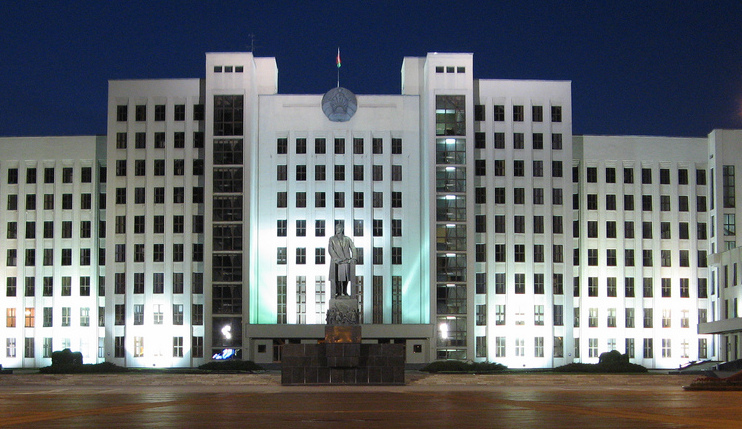Belarus’s Non-Election
June 22, 2012 -
Andrew Wilson
-
Bez kategorii

belarus parliament.jpg
So Belarus will hold parliamentary elections on 23 September, before Georgia and Ukraine in October. So what? Why should the world pay any attention to fixed elections to a “parliament” that was established by a constitutional coup d’état in 1996?
The Belarusian “House of Representatives” is the fake that replaced the real parliament that was elected under the 1994 constitution in 1995. It wasn’t even elected the first time. Half of the 1995 parliament’s original members were “persuaded” to sit in the new House, the rest were presidential appointees. Subsequent elections in 2000, 2004 and 2008 have never returned a single opposition deputy. In 2000 Lukashenko cared enough about appearances to ensure some tame of fake parties entered the parliament – the loyal “Communists”, “Agrarians” and “Liberal-Democrats”, but since then most have been independents – no less than 103 out of 110 deputies at the last elections in 2008. One was an “Agrarian” and five belonged to the “Communist Party of Belarus“, which replaced the original “Party of Communists of Belarus” in a political technology “cloning” operation after 1996. (The Party of Communists was forced to re-launch itself as the United Left Party “A Just World” in 2009). Only once has real politics disturbed the tranquil life of the rubber-stamp legislature: when the “Republic” group briefly made trouble during the time of “disappearances” and elite disunity in 1999-2000.
Commentators will no doubt discuss the two traditional stories that appear every election time. First, will the opposition participate or boycott? Second, will Lukashenko finally sanction the long-rumoured appearance of an official regime party or parties, instead of relying on “independents”? Both stories are red herrings. The real purpose of the elections is different. For the opposition the real aim is to cement Western favour. The decision to boycott or not to boycott mirrors Western preferences, the opposition simply wants to show signs of life to its sponsors.
An old opinion written by the late Vitali Silitski “Elections in Authoritarian Regimes – Farce or a Chance for Change?” in 2001 has been much quoted in the Belarusian opposition press. Quite rightly. His argument was that dictators ultimately “lose due to the very same reasons that any leader or government loses votes in fair elections. When society is dissatisfied with the situation in a country it will look for an alternative”. So any opposition has to be active in creating and advertising that alternative, or it will miss its chance when the time comes. It also needs to show that it believes in the long slog of electoral competition, whether it is successful or not.
On the other hand, the fact that Lukashenko has never really wanted to sanction a regime party – even the loyalist project “Belaya Rus” – tells us a lot about the way his system works. He doesn’t want to create a vehicle for the possible coalescence of bureaucratic interests, or a lobby for nomenklatura privatisation. “Parliamentary” elections are also useful for maintaining a neo-Soviet ritual of participation and control, and for demonstrating the disunity and impotence of the opposition.
This is how the vote should be reported in the West. At the last elections in 2008, the Western media fell into the trap of discussing “concessions” – whether the opposition might be allowed to win a couple of seats or more. Instead of looking at minutiae, the elections should prompt comment on the bigger picture.
This is not a real parliament, and this is not a real contest between government and opposition. But it will confirm the ritualised division of the two.
Andrew Wilson is the author of Belarus: The Last European Dictatorship


































